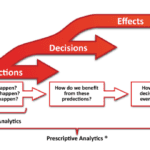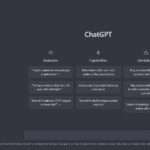What are chatbots, and how do they work in the healthcare industry?
A chatbot is a computer program that simulates human conversation. Chatbots are commonly used in online customer service to quickly and efficiently resolve common issues. AI virtual assistants in the healthcare industry are used to provide patients with information about their health and schedule appointments. Chatbots can understand natural language, when a user types or speaks to a chatbot, the bot processes the text or speech and then retrieves the requested information from its database and responds accordingly.
Healthcare chatbots can help patients with various tasks, such as booking appointments, ordering prescriptions, and finding doctors in their area. In addition, chatbots can offer general health advice and answer common questions about symptoms and treatments. By automating simple tasks, chatbots help free up nurses and doctors to focus on more complex cases.
Virtual assistants are becoming increasingly sophisticated as they continue incorporating AI technology. Ultimately, chatbots have the potential to transform the healthcare industry by making it more efficient and convenient for patients to get the care they need.
US healthcare organizations must comply with HIPAA. HIPAA-compliant chatbots use a combination of encryption, artificial intelligence (AI), and natural language processing to ensure secure communication. Chatbots can be used for everything from appointment scheduling to providing essential medical advice. By completing mundane tasks quickly and accurately, these bots free up valuable time healthcare providers can spend with patients. HIPAA compliant chatbots provide an efficient and secure way to communicate with patients. These bots are designed to ensure that all patient data is protected as required by the Health Insurance Portability and Accountability Act (HIPAA).
The benefits of using chatbots in the healthcare industry
Chatbots are increasingly being used in a variety of industries, including healthcare. There are several potential benefits of using chatbots in healthcare:
- They can help to automate routine tasks, such as booking appointments and answering basic questions. This can free up staff time for more critical tasks.
- Chatbots can be available 24/7, assisting outside regular business hours.
- Chatbots can provide personalized service by remembering a user’s preferences and history.
- Chatbots can help to improve customer satisfaction by providing quick and easy access to information.
While some challenges are associated with using virtual assistants, such as data privacy concerns, the potential benefits outweigh the risks.
Types of Chatbots in Healthcare
Symptom Assessment
Symptom assessment chatbots are AI-driven digital tools that help users evaluate and diagnose their medical symptoms. They ask questions about a person’s symptoms, health history, lifestyle habits, and other relevant information to identify possible causes of the symptom. The algorithms analyze the user’s answers and advise on the following care steps. For example, the chatbot can suggest potential diagnoses and advise on whether the user should see a doctor or make any lifestyle changes. Symptom assessment chatbots are convenient for users, as they provide instant access to medical advice without having to wait for an appointment. These tools may be especially beneficial in remote areas where access to healthcare is limited.
Additionally, they can help reduce healthcare costs by assisting patients in diagnosing their symptoms without having to visit a doctor. By providing users with access to medical advice, symptom assessment chatbots are changing the way we approach healthcare. Along with providing self-diagnosis capabilities, they also play an essential role in health education by making medical information more widely available and easier to understand. As the technology continues to improve and become more widely used, symptom assessment chatbots could revolutionize how we access health information and receive medical advice. This could result in improved healthcare outcomes, reduced costs, and improved overall health.
Appointment Scheduling
Appointment Scheduling Healthcare Chatbots are intelligent virtual assistants that can help healthcare providers streamline the appointment-scheduling process. These automated solutions enable patients to easily find and book available appointments without having to wait on hold or rely on manual processes. With a virtual assistant, users can quickly search for open slots, select their desired time and confirm their appointment. Chatbots also allow providers to quickly and easily manage their appointment scheduling process, freeing up time for other tasks.
Insurance Claims
Healthcare automated chat assistants can make insurance claims and coverage processes much more straightforward for medical professionals. With the help of these bots, medical personnel can quickly access patient information such as their medical history, medications prescribed in the past, current coverage plans and more. This helps promptly answer all queries from their patients with accuracy and precision.
This type of bot can also help file claims and track their status. This helps to speed up the process a great deal since most of the paperwork is handled by the bot. This saves valuable time for medical professionals and prevents them from wasting precious time on mundane tasks.
They are also beneficial in reducing errors in claims submissions. They are usually pre-programmed with information about insurance companies and their policies, making it easier to file and allowing medical practitioners to focus on providing better patient care. In short, healthcare chatbots can make coverage and claims processes much easier for both patients and doctors alike.
Mental Health
Mental health chatbots are computer programs designed to support and assist people with mental health issues. Depending on the technology available, these bots can interact with users through text, voice or video. In addition, they may use artificial intelligence (AI) algorithms to understand users’ language and questions and respond helpfully.These bots provide personalized advice tailored to an individual’s unique needs. They are not limited by time constraints or geography like traditional face-to-face therapies.
Despite their potential benefits, mental health chatbots are still in the early stages of development. While they may provide helpful advice and support, they cannot replace professional medical advice or psychotherapy. Some mental health professionals have expressed concerns about using chatbots to diagnose or treat mental illnesses due to the lack of research on these technologies.
How chatbots can improve patient care and satisfaction
In recent years, healthcare organizations have been looking for ways to improve the quality and efficiency of patient care. One area that has seen considerable investment is the development of chatbots. You can use them to provide information and support to patients and manage appointments and prescriptions. Studies have shown that chatbots can improve patient satisfaction by providing a quick and convenient way to access information and support. They can also help to reduce waiting times and improve the efficiency of care. In addition, chatbots can be used to monitor patients’ health and well-being and to provide valuable data that can improve future care. As such, chatbots can transform how healthcare is delivered and improve patients’ lives worldwide.

The challenges of implementing chatbots in the healthcare industry
As the healthcare industry looks to embrace new technology, chatbots have emerged as a potential solution to many of the challenges faced by providers and patients alike. From reducing wait times to improving access to care, chatbots have the potential to transform the healthcare landscape. However, implementing them presents many challenges for healthcare providers. First and foremost, chatbots must be able to understand and interpret complex medical queries. They must also integrate with existing health systems to provide the most comprehensive care possible.
Additionally, chatbots must be compliant with all relevant privacy laws and regulations. Despite these challenges, chatbots offer a unique opportunity for healthcare providers to improve the quality and efficiency of care. With the right approach, chatbots can help to make the healthcare system work better for everyone involved.
Examples of successful chatbot implementations in the healthcare industry
In recent years, the healthcare industry has begun adopting chatbots to improve patient care and support. Chatbots offer a convenient way for patients to receive information and get answers to their questions. They can also help to schedule appointments and follow up with reminders. Additionally, you can use bots to provide educational content and answer frequently asked questions. So far, several healthcare organizations have had success implementing chatbots. For example, the Cleveland Clinic launched a chatbot called Express Care Virtual Assistant in 2016. The chatbot provides patients with 24/7 access to health information and appointments. In 2017, Stanford Medicine launched MyHealthBot, a chatbot that helps patients manage their appointments, medications, and test results. And in 2018, the Mayo Clinic debuted its chatbot called Symptom Checker. Symptom Checker helps patients identify their symptoms and guides them on when to seek medical attention. These examples demonstrate that chatbots have the potential to revolutionize healthcare by providing convenient, around-the-clock access to information and services.
Healthcare Chatbot Providers
A few companies provide automated healthcare solutions, such as chatbots. Among them are Intercom, Chatbot.com, Syllable, Woebot Health, CloudMedx and others.
Chatbots are revolutionizing how people interact with the healthcare industry. Their benefits include improving patient care and satisfaction, reducing costs, and increasing efficiency. However, you must overcome challenges to implementing chatbots in the healthcare industry. With careful planning and execution, however, chatbots can provide a valuable addition to any healthcare organization.











